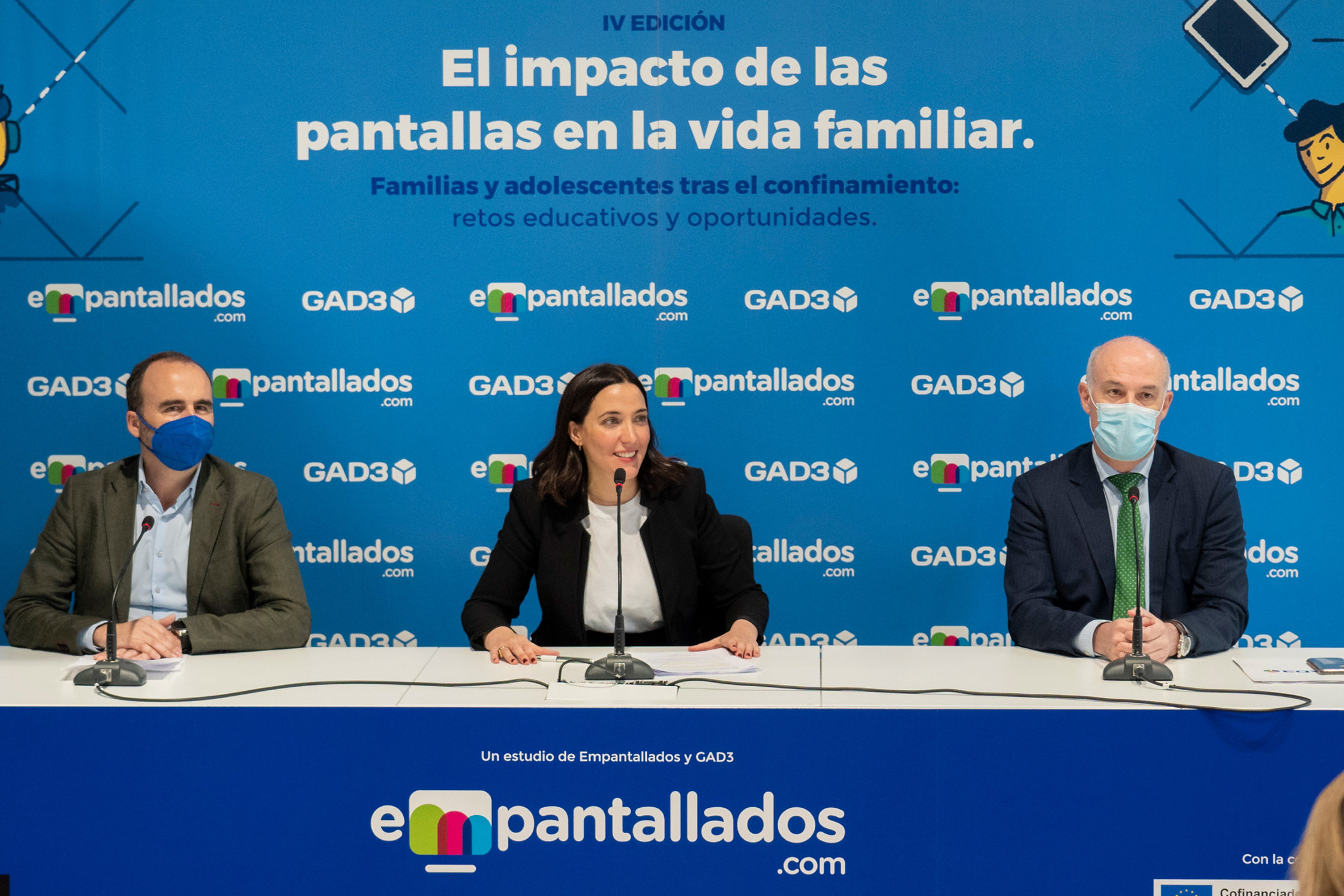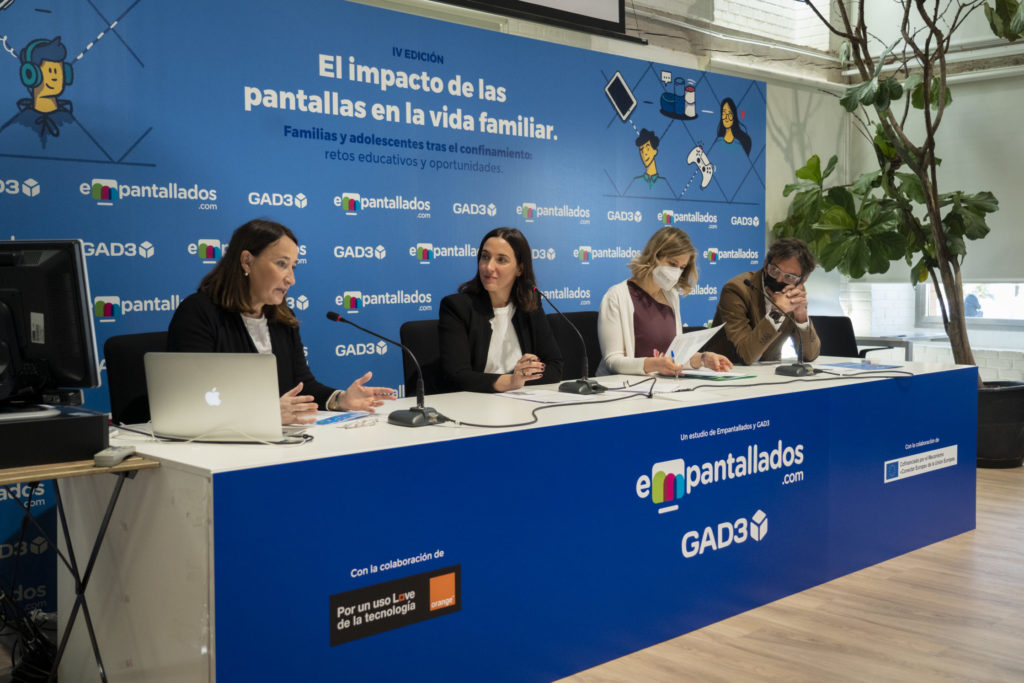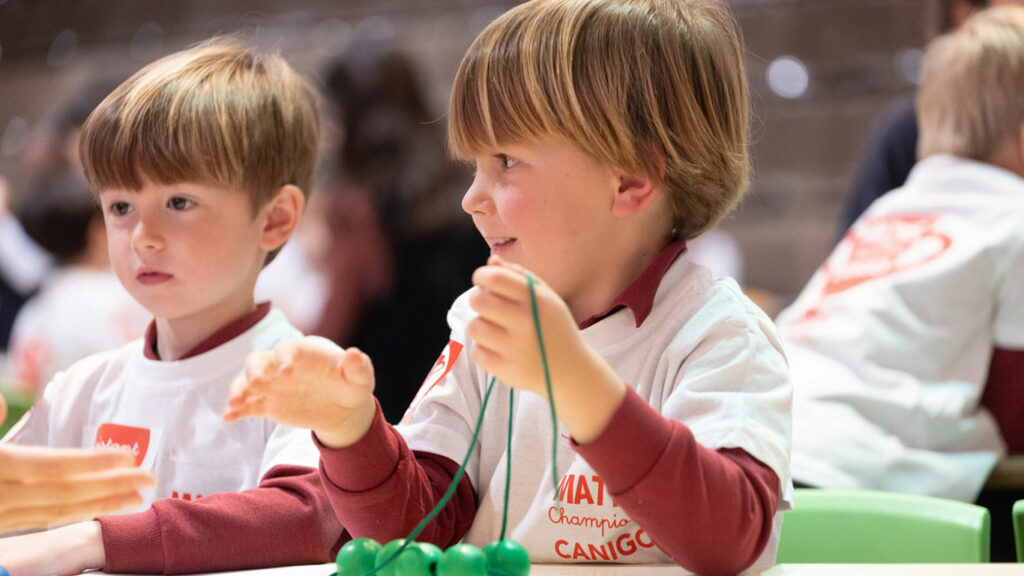tras el confinamiento
tras el confinamiento
Este martes 22 de febrero de 2022 ha tenido lugar la presentación de la 4ª edición del estudio “El impacto de las pantallas en la vida familiar. Familias y adolescentes tras el confinamiento”, elaborado por Empantallados y GAD3, con el apoyo de Orange y la Comisión Europea.
Empantallados y GAD3 presentan la 4ª edición del estudio
The report analyzes the changes in digital usage by parents and children, after confinement, and the main challenges and opportunities posed by the digital environment for adolescents.

The results of the report are based on a survey of a representative sample of young people between the ages of 14 and 17, as well as parents with teenage children. The research, carried out at the end of 2021, also collects qualitative data through focus groups with adolescents and parents.
The event was presented by Pía García Simón, from Empantallados and by Narciso Michavila, president of GAD3. Daniel Morales, director of Corporate Social Responsibility of Orange, was in charge of opening the event. Next, three experts addressed the role of family, emotional health and the digital future: Charo Sádaba, European researcher on minors and technology and Dean of the Communication Department at the University of Navarra; Silvia Álava, psychologist; and Rodrigo Miranda, General Director of ISDI, the first digital native business school.
After confinement, screen use time increases in families
During the pandemic, the confinement caused an increase in the use of screens in Spanish homes that has remained in the post pandemic form of normalcy. As the study indicates, two out of three adolescents (68%) use their mobile phone more than before the pandemic, just four percent more than their parents (64%). In addition, the computer has once again become a commonly used device; more than half of parents and children admit to using it more than before.
The report reveals that 84% of adolescents say they use their mobile phones to evade boredom, especially when they are alone at home. Half of parents recognize that the digital rules in the home have become more flexible after the pandemic..

The impact of screens on the emotional health of adolescents
Screens offer adolescents an alternative to boredom, however, many young people prefer interactions in person and physical contact. Only 36% prefer to stay at home playing a video game than going out and almost 80% opt for in class or blended educational settings.
The report points out parents’ concern about the impact of screens and social networks on children’s self esteem. Young people recognize how the screens produce a roller coaster of emotions and that, sometimes, it helps them to escape from their everyday reality. The interaction with strangers is what worries parents the most, while teens worry about cyberbullying.
Parents: main point of reference for their children
Given the uncertainty that the digital environment can cause in parents, the report shows how they continue to play a relevant role in their children’s education. 78% of adolescents acknowledge that they heed the advice of their parents, although sometimes they think differently.
The home becomes an opportunity to strengthen ties between parents and children: watch series and movies as a family and generate topics of conversation with teenagers. The family is a learning space for technological innovations, where parents and children help each other
Digital present and future
The pandemic has accelerated the digitization process in society and has fostered the development of new skills such as lifelong learning or collaborative work. 75% of teenagers have recently looked for a video tutorial to learn how to do something new. And, in the last year, 60% have done some teamwork.
Parents are aware that their children’s future is one hundred percent digital. 94% say that screens are going to be very important for their children’s professional future. And 92% are certain that the internet changes the labor market.
In this reality, digital training and the example of parents is essential to be able to guide and accompany children in the challenges and opportunities presented by the digital world.












